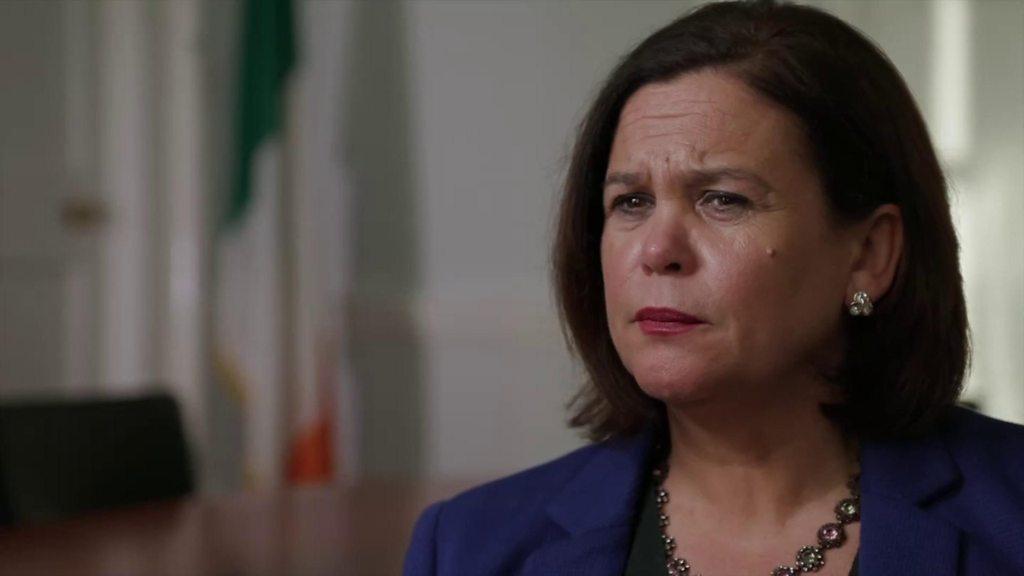Arlene Foster: I won't see a border poll in my lifetime
- Published
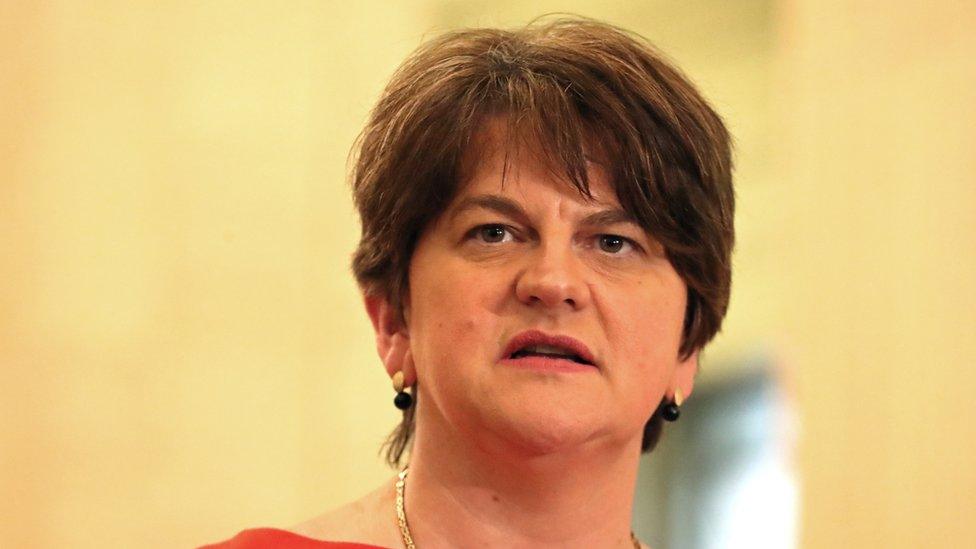
Arlene Foster told BBC NI's The View there are more important things requiring attention than a border poll
First Minister and DUP leader Arlene Foster has suggested there will not be a border poll or a united Ireland in her lifetime.
Sinn Féin has said it wants a referendum on Irish reunification within five years.
Some recent opinion polls have shown an increase in support for getting rid of the border.
However, Mrs Foster told BBC NI's The View there were more important things requiring attention.
The Democratic Unionist Party leader, who turns 50 this year, was asked if she thought she would see a united Ireland in her lifetime.
She replied: "No I don't."
Pressed if she thought she would see a border poll in the same timeframe, she again replied: "No, I don't".
Asked why, she added: "Because there has to be evidence there.
"As you know the test for a border poll is that people would vote for it in a majority. And there's no evidence of that.
"Yes, people can have different opinion polls, but there's no tangible evidence if you look right across Northern Ireland."
The DUP failed to respond to an invitation to take part in a discussion in Cookstown this week organised by Shared Ireland, a group which believes unity is the way forward, but which wants everyone, including unionists, involved in the discussion.
Former Ulster Unionist leader Mike Nesbitt was due to take part but had to withdraw at the last moment.
He believes unionists can no longer stay out of such discussions.
He told the programme: "During my lifetime I think there are many examples of unionism's failure to outreach doing damage to the cause.
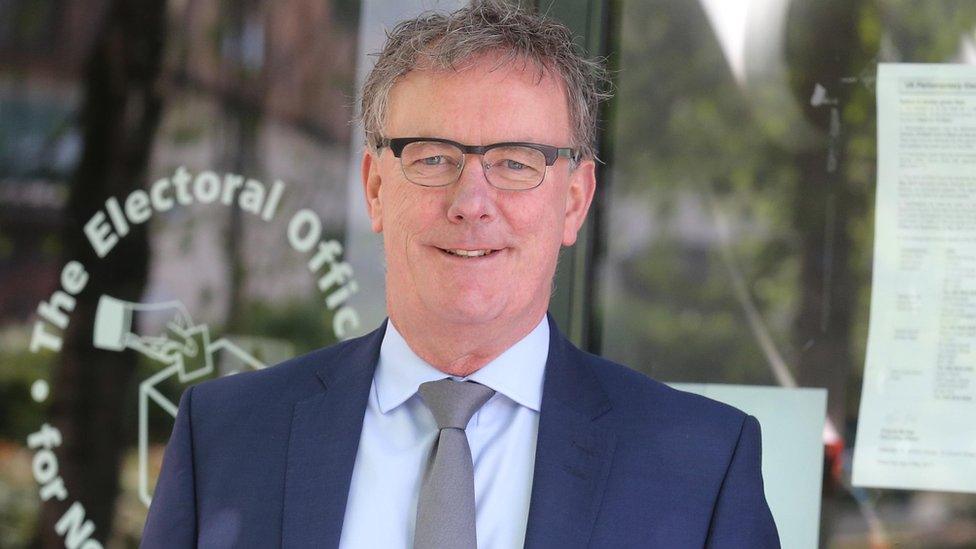
Mike Nesbitt believes unionists can no longer stay out of discussions about Irish unity
"I think of 1985 and the reaction to the Anglo-Irish agreement when they basically alienated every friend we had at Westminster.
"I think of Gerry Adams' first visa to go to the States in '94 when Ian Paisley and Jim Molyneaux stayed home when they should have gone to challenge them.
"And that's what I would have done in Cookstown on Tuesday night, I would have challenged."
However, Colin Harvey, professor of human rights at Queens University, who did take part in the Cookstown event, said unionists faced a challenge.
"There's been a lot of focus on those proposing Irish reunification," he said.
"But if these referendums do take place, if there's a referendum in the north, what is the proposition that unionism is going to come up with?
"I think there'll be change. No matter what happens, the current arrangements won't remain static, if there's a vote to remain in the UK or if there's a vote for Irish reunification.
"But I think what this does is it throws down a real challenge. Unionism has been massively complacent. Unionism is effectively sitting on its hands.
"We need to know if there's a referendum here on the constitutional future of this island, what is the unionist proposition."
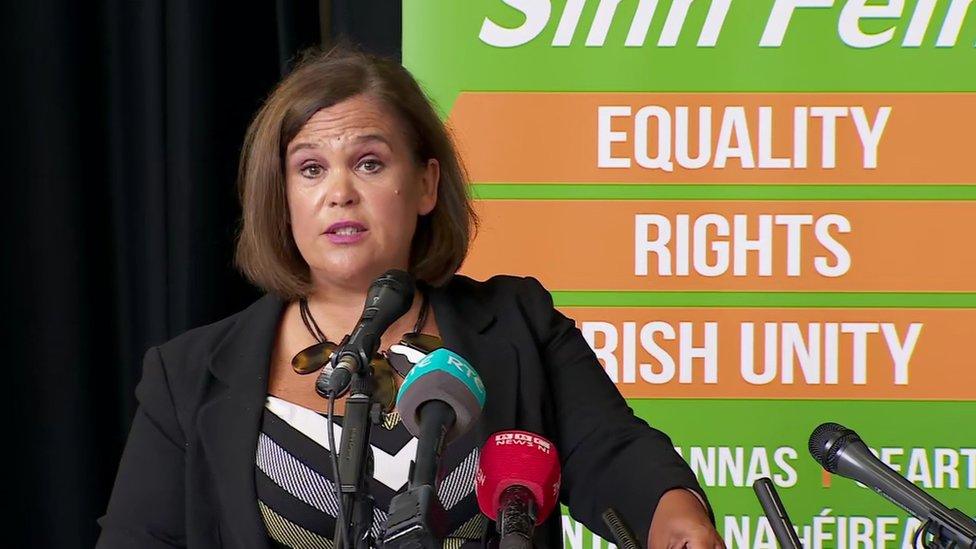
Sinn Féin leader Mary Lou McDonald has repeatedly called for a border poll
One Sinn Féin member at the Cookstown event was highly critical of what he called the triumphalism displayed by some of his party colleagues after the Republic's general election.
Conal Hamill, a Sinn Féin member from The Moy, told The View: "Tonight's all about a shared Ireland.
"And I didn't think as a Sinn Féin member, while I understood some of the euphoria associated with getting elected as TDs in various parts of the Republic of Ireland, that it's not helpful in the context of shared Ireland to see that level of triumphalism.
"We can't on one hand complain about the triumphalism of the Orange Order marching in places where they're not welcome and at the same time support that level of triumphalism from a newly elected TD.
"So if I was a northern unionist, if I lived in Larne or Carrickfergus or parts of east Belfast, and I was seriously considering what am I getting into bed with here in terms of a shared Ireland I would have major reservations about that."
The View is broadcast on BBC One NI at 10.35pm on Thursday and then available on the BBC iPlayer.
- Published1 August 2019
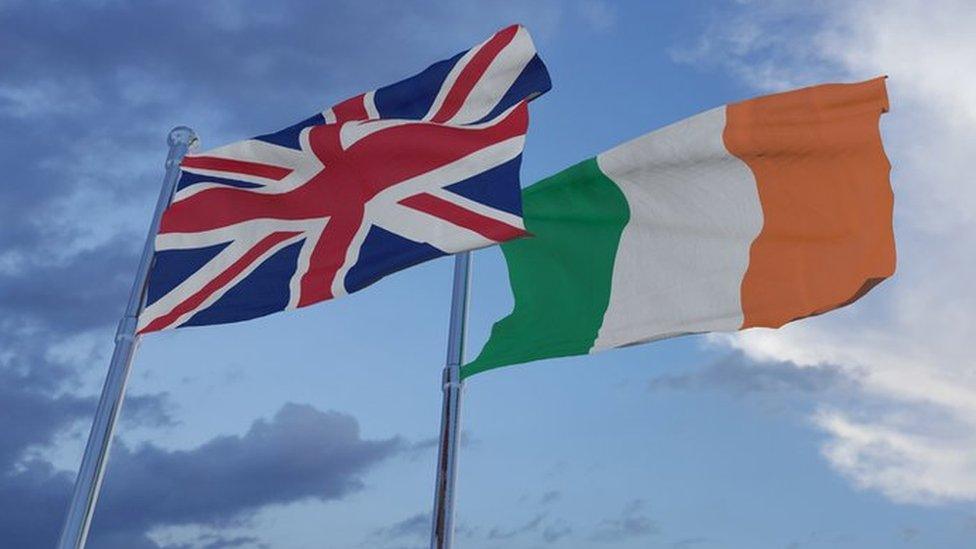
- Published11 February 2020
